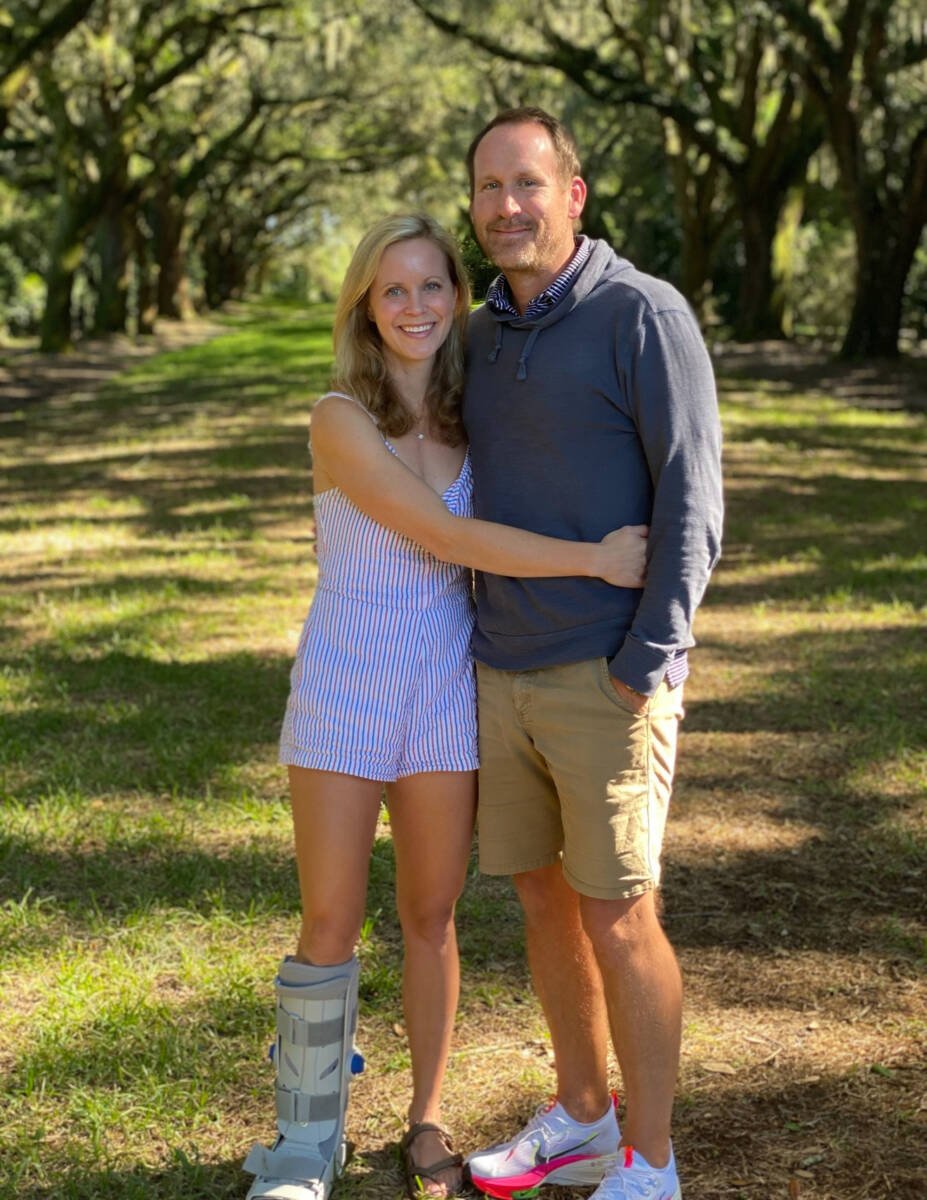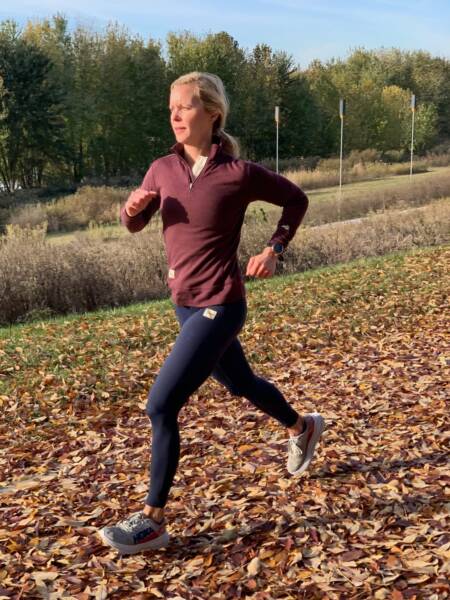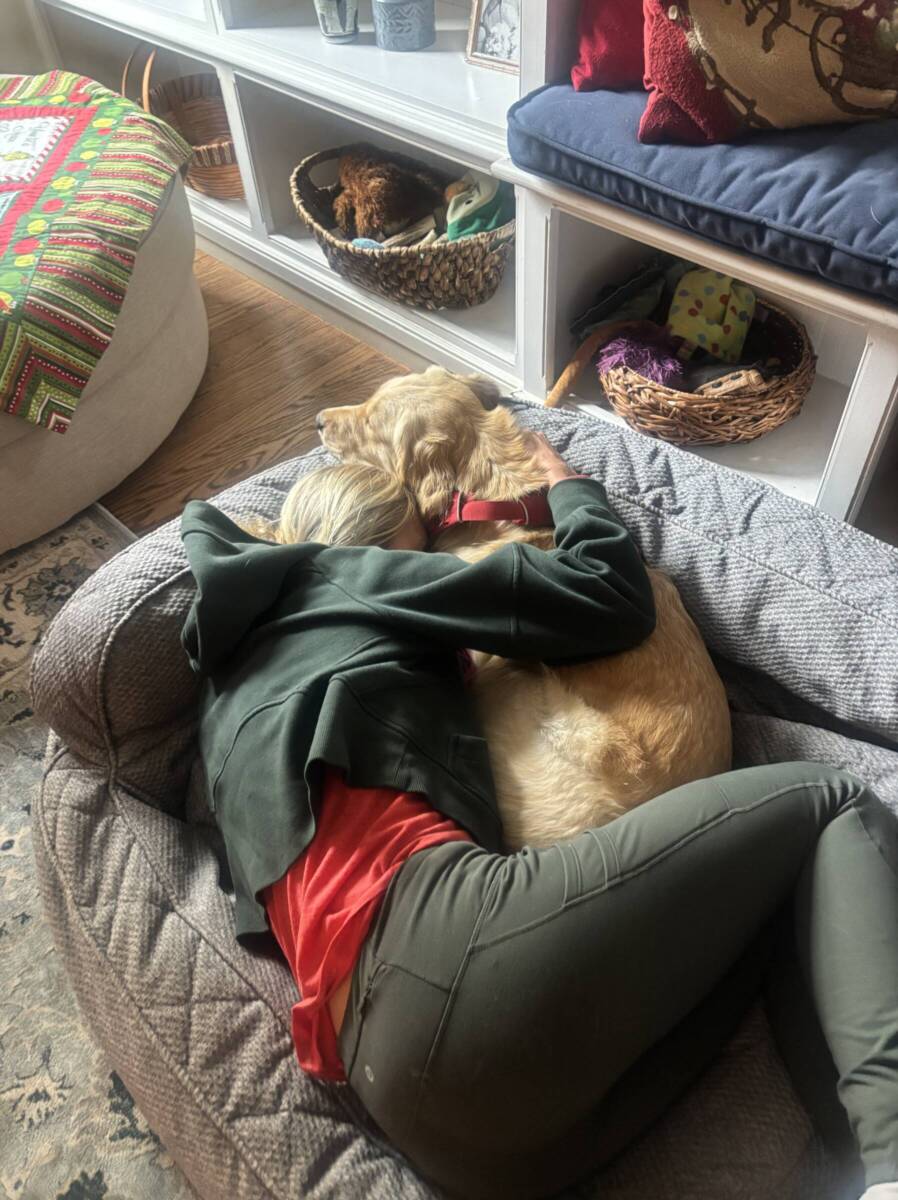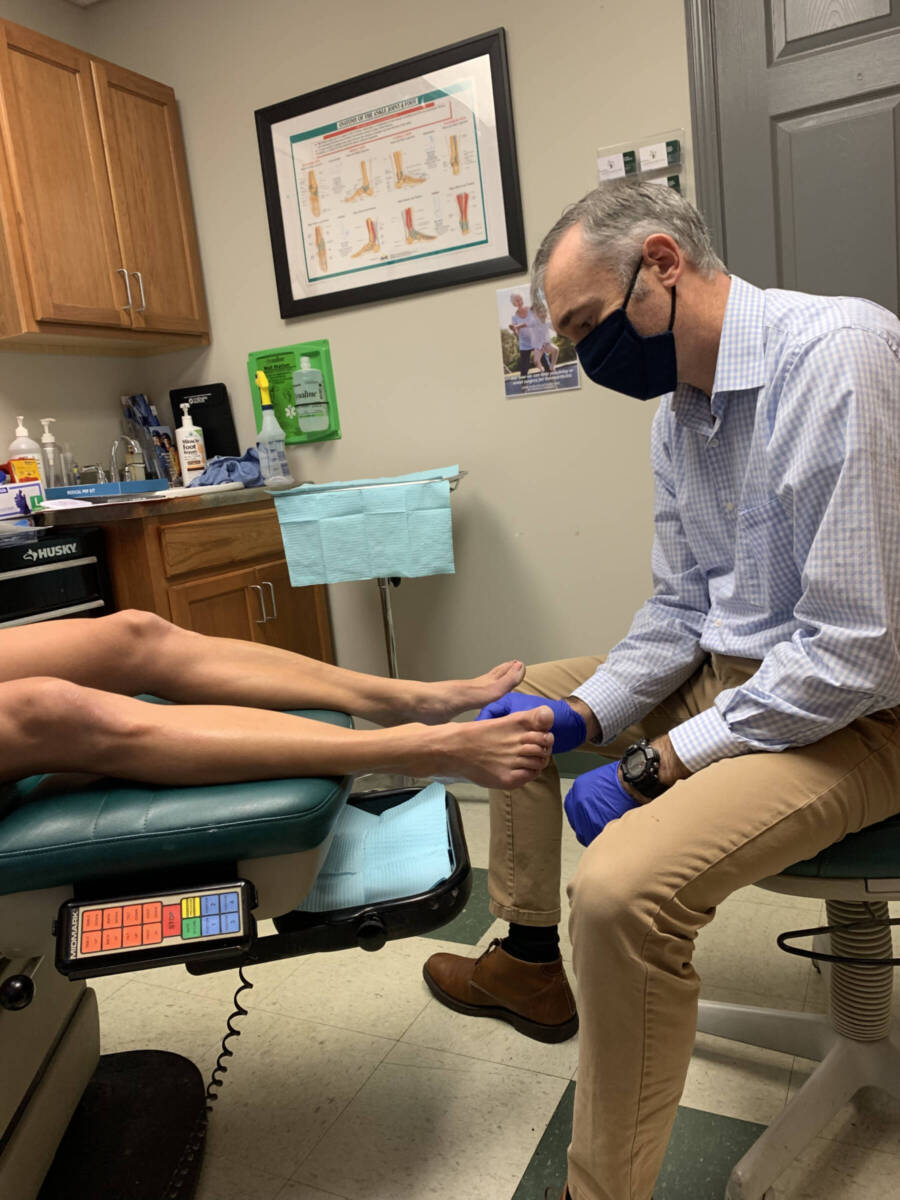10 Things I Say to Myself to Stop Spiraling When I Have a Running Injury
Unfortunately, I have been on the running injury block many times in the past few years. You would think having to take time off running wouldn’t phase me anymore. But it does. Every time. And I have to stop myself from sprialing from my running injury.

Still, I am handling it much better than I have in the past thanks to my self-talk.
I’ve written a lot about how to cope with running injuries, how to combat running injury PTSD, how to return to running after injury—but I haven’t let anyone into my head when I am dealing with one.
It is a concerted effort not to spiral—not to think this is it—I am going to be off running again for another year. That I am going to lose my identity as an athlete and all my goals are dead.
Table of contents
- Why I Spiral With Running Injuries
- 10 Things I Say to Myself to Stop Spiraling When I Have a Running Injury
- 1. This time off from running is a drop in the bucket in the grand scheme of your whole running career.
- 2. Injuries are part of the process as a runner.
- 3. Your body is smart. Trust it to know how to heal itself.
- 4. Embrace the extra time to do other things such as yoga, sleeping, catching up with a friend.
- 5. Maybe this layoff is for a reason I’m not meant to know—or it is keeping something more serious at bay.
- 6. It takes several weeks of missing running to lose fitness ; fitness is easily maintained by cross-training; and what is lost comes back quicker the second time around.
- 7. Injuries are not my fault. I am not broken. There is nothing wrong with me and I am not unique. Most runners deal with injuries and niggles.
- 8. Extra rest can be good. View it as a little vacation from the “grind” that allows you to come back rejuvenated and hungry.
- 9. It can be nice to not have to get motivated on days you don’t feel like running like when the weather sucks or you’re tired, etc .
- 10. Maybe not running right now is saving me from getting hit by a bus.
Why I Spiral With Running Injuries
It makes sense I would struggle with this.
Just a few months after deciding to try to qualify for the Olympic Trials Marathon, I tore my hamstring. It took almost two years to return only to get long COVID and tear my plantar fascia when trying to return from that. About a year after, I ended up tearing my hip labrum. My running career as a mom has been one of many fits and starts.
But I love running way too much to give up on it. I love myself too much—especially when running—to give up on myself, too.
Now, I don’t mess around with pain. I have learned not to push it. Instead, the careful route is the best route to save me from more time off later. So, right now, after getting plantar fasciitis likely caused by a track workout in the high stack of my Alphaflies, I am taking several days off until my foot stops talking to me.
I know to take time off when any of the three below items are checked with the pain:
A) it makes me change my stride
B) it goes above a 2/10 on the pain scale
C) it gets worse as a run
Running with any one of these will set you up for an injury.
10 Things I Say to Myself to Stop Spiraling When I Have a Running Injury
So, to keep myself from spiraling with this running injury, these are the ten things looping in my head.
1. This time off from running is a drop in the bucket in the grand scheme of your whole running career.
It’s important to have the long view and remember that the overarching goal is longevity in the sport. Taking some time off here and there is nothing when you zoom out and look at the big picture—and even with a training cycle.
For example, this week I am taking off for my foot will have little to no effect on my training for the Chicago Marathon this fall. Running fitness is built with many bricks. Missing a few here and there doesn’t make or break a race. This is also one reason why I am in favor of big marathon builds so you have wiggle room for extra rest days or training interruptions.
2. Injuries are part of the process as a runner.
Running is a repetitive and high-impact sport, so there is a high risk for something to become irritated. It really bugs me when people are like: oh, you’re injured? Again?!
Seriously, talk to any runner (over 20!) who is out there chasing goals and they will tell you about their different injuries and niggles, and pain they are dealing with now.
Injuries or niggles are par for the course for runners. Sure, we can train smart and do what we can to avoid them—but the odds are not in our favor. There are so many variables and so much repetition and impact that the risk is high for something getting overworked. It’s not a given but it is probable!
3. Your body is smart. Trust it to know how to heal itself.
Often when I am injured, I do something that my husband calls—spiderwebbing. I become Spiderman, just shooting off threads everywhere trying to find something to stick and help me. ..I’m talking to other runners, healthcare professionals, on the internet—trying this modality or that.
And I forget–that our bodies are capable of healing without help. A quick overview of human biology and one can see just how amazing and smart our bodies are. They overcome so much—so give yours credit. Have faith it can heal a little plantar fasciitis, or whatever. Plus, believing you can heal can actually help you heal. The mind is a powerful thing.
4. Embrace the extra time to do other things such as yoga, sleeping, catching up with a friend.
Lots of times people tell injured runners to find a new hobby. I have never done that. I love running. Nothing compares to running.
But I have used the time spent not running doing things I didn’t feel like I had time for like a hot yoga class, a phone call with a friend, cleaning, etc.
This week I got my new passport and REAL ID, found a new school for my daughter, made and had various appointments for all my family members, cleaned closets, and oiled the kitchen countertops, and it’s only Tuesday.
5. Maybe this layoff is for a reason I’m not meant to know—or it is keeping something more serious at bay.
It’s that whole “you don’t get what you want but what you need” sort of thing. My injuries have taught me many lessons and have made me a much better running coach. I can totally empathize with a runner who has dealt with injuries and also know how to navigate them.
My running injuries have also helped reinvigorate my love of running and returned it to its pure origin instead of the warped quest for self-worth it had become.
I also like to think of some bonus time off as an opportunity for my body to heal, perhaps lurking injuries and stop them in their tracks.
6. It takes several weeks of missing running to lose fitness; fitness is easily maintained by cross-training; and what is lost comes back quicker the second time around.
These are physiological facts. It takes about two weeks of doing no exercise to lose a statistical amount of fitness. It doesn’t much aerobic exercise (some studies show just 13 minutes!) to maintain fitness levels.
And what is lost, such as in oxygen intake, is easily reversed. This article I wrote on how long it takes to lose running fitness is chalk-full of fun facts to ease your spiraling mind.
7. Injuries are not my fault. I am not broken. There is nothing wrong with me and I am not unique. Most runners deal with injuries and niggles.
I can’t not tell you the cycle of shame and blame that can follow injured runners—self-inflicted or internet-inflicted—or even from loved ones. I have had my loved ones tell me my running injuries were my fault.
But unless you are a runner, you will not fully understand the risk that can come with running, especially trying to run at a level that challenges you. Now, sometimes running injuries do come from errors of judgment, often rooted in fear and insecurity, but these are opportunities to learn and grow—and do better next time.
8. Extra rest can be good. View it as a little vacation from the “grind” that allows you to come back rejuvenated and hungry.
I know every time I take a break from running, I can’t wait to get back, especially to long runs and workouts. Since coming back from my running hiatus this year, every run has been greeted with enthusiasm. I just LOVE RUNNING.
So, this step back was not necessary as far as the timing goes. However, as I head into summer and marathon training, it is a nice punctuation before that rigorous training begins. So, I am reframing it as it as a re-set.
9. It can be nice to not have to get motivated on days you don’t feel like running like when the weather sucks or you’re tired, etc.
Ok, I did tell a little bit of a white lie. There have been some runs of late where it was cold and rainy, and I was tired and unmotivated. So, I am holding onto the little silver lining that I don’t have to push myself out the door if I don’t want to while on my time off. This helps stops me from spiraling with a running injury because it reminds me that while I LOVE running, I don’t always WANT to!
10. Maybe not running right now is saving me from getting hit by a bus.
Kidding. Sort of. I mean, you never know. We all have had those moments where a last-minute decision or a split second saved us from a totally different fate. We are not the great architects of our lives. Some things out of our control may be for the best or a reason we just can’t ever see.
Ok, I don’t know if this self-talk helps you stop spiraling from a running injury, but I know it helps me. Now, it’s your turn. What do you tell yourself to keep from going over the edge when you can’t run?






